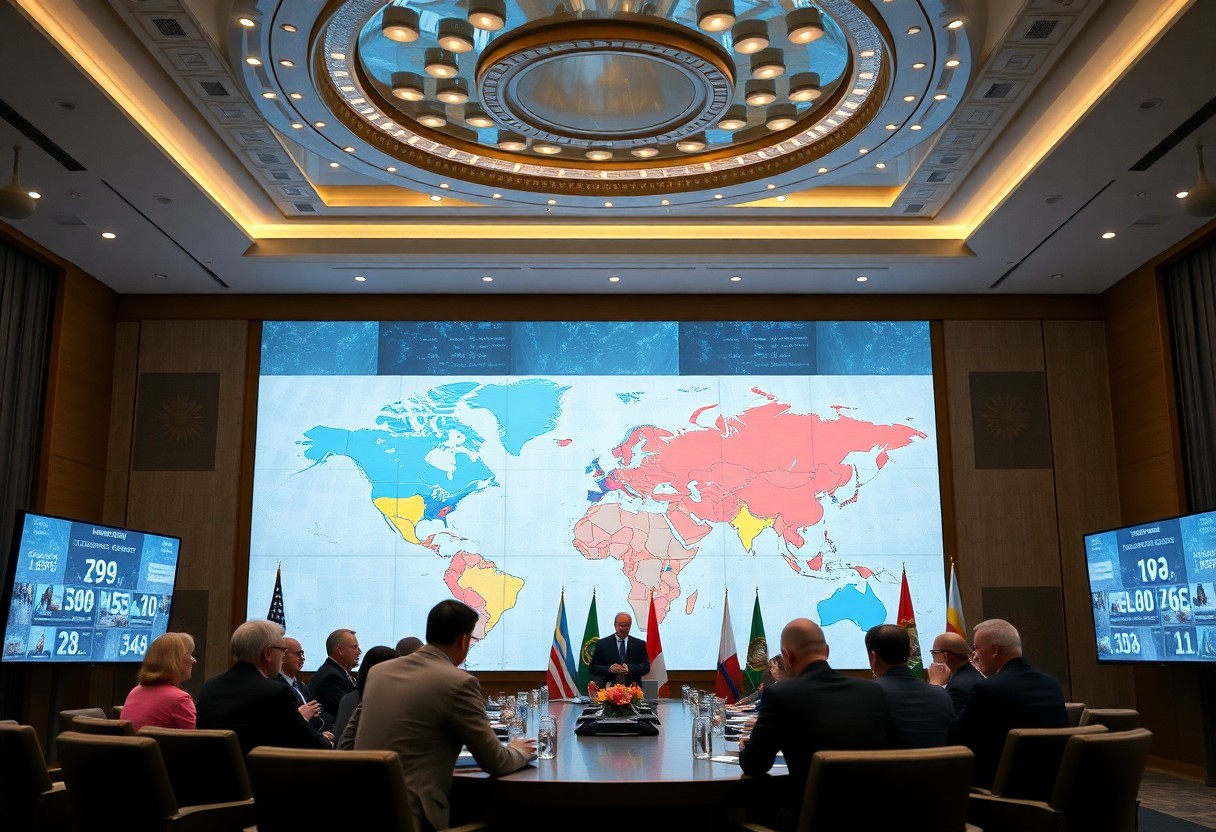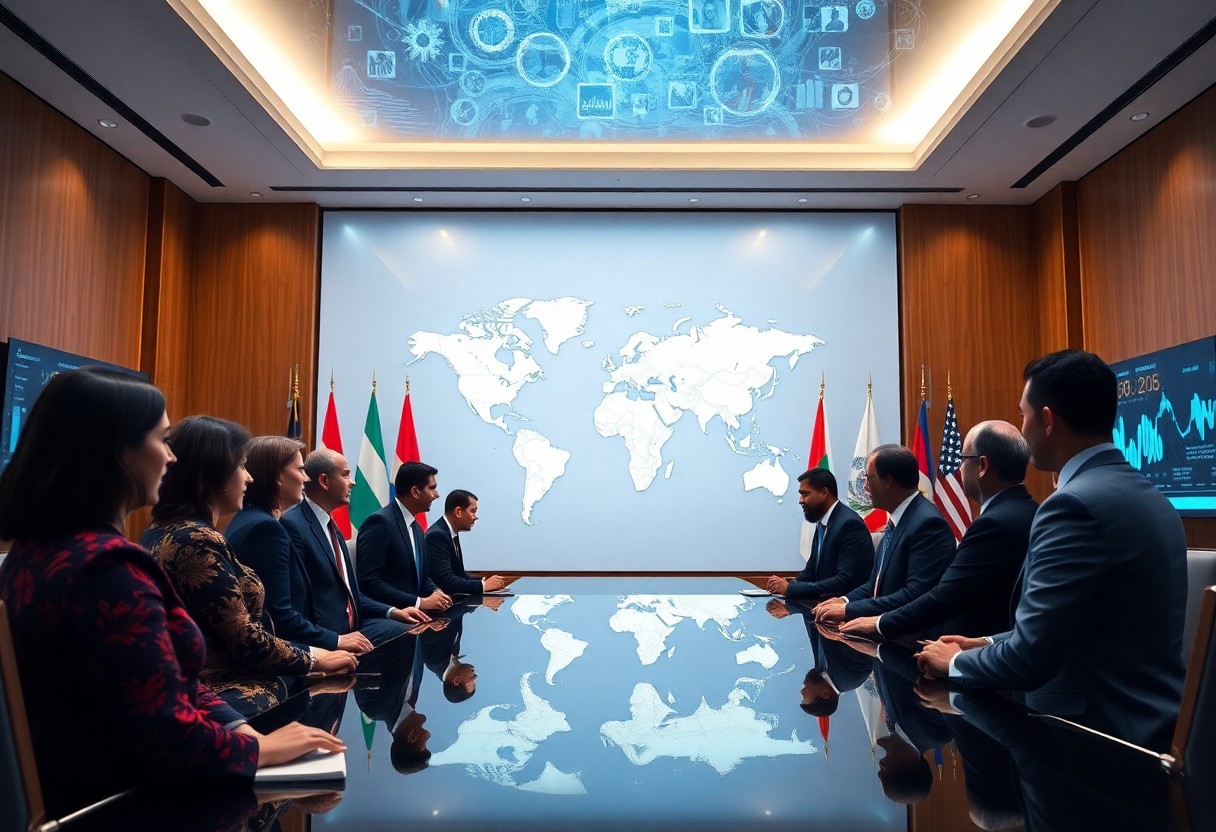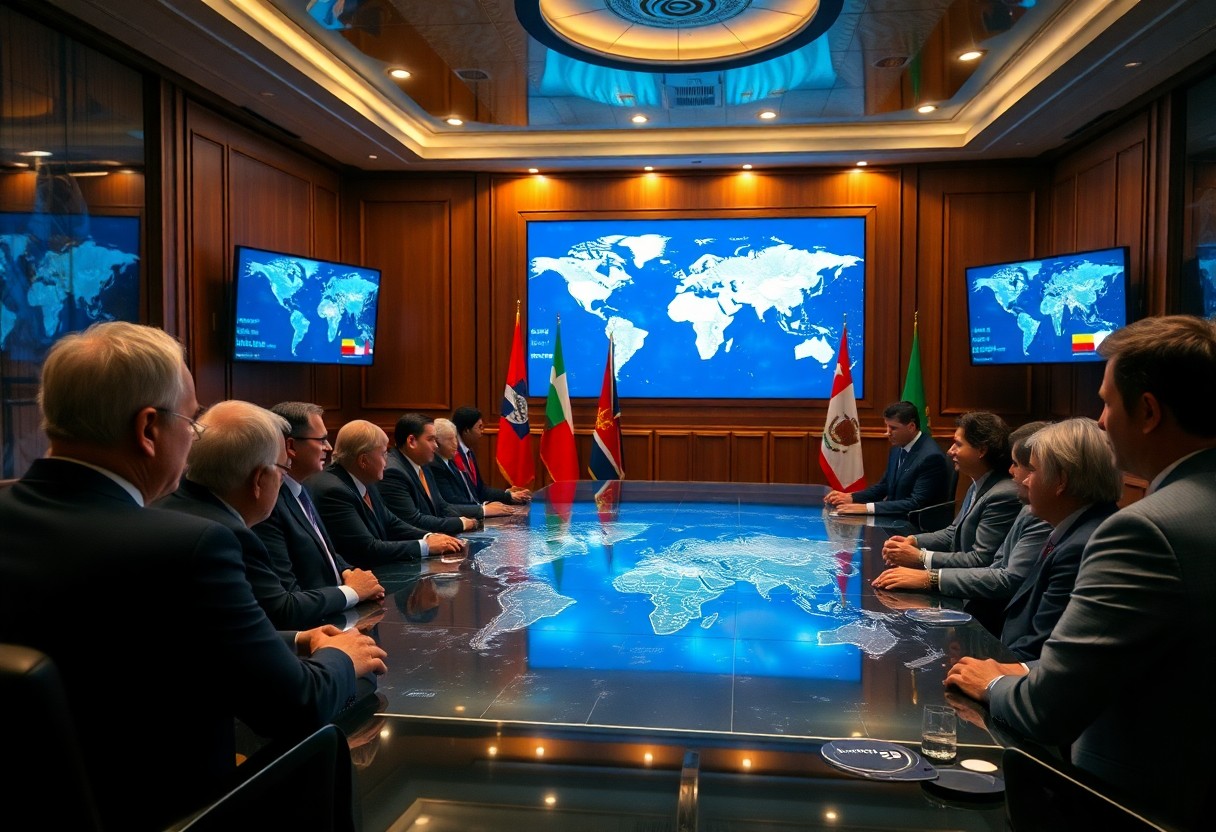There’s a growing need for skilled professionals in the field of diplomacy and international relations, and pursuing a Master of Diplomacy and International Affairs (M.DIA) can significantly enhance your career opportunities. This advanced degree equips you with the necessary analytical, communication, and negotiation skills required to navigate complex global issues. As you explore this multifaceted program, you’ll gain insights into international policies, global security, and economic relations, positioning yourself for impactful roles in government, NGOs, and international organizations.
Key Takeaways:
- The M.DIA program focuses on developing skills in negotiation, conflict resolution, and global policy-making, catering to those aiming for careers in diplomacy and international relations.
- Students engage in hands-on experiences through simulations, internships, and networking opportunities with professionals in the field, enhancing practical knowledge and connections.
- The curriculum emphasizes interdisciplinary approaches, incorporating political science, economics, and cultural studies to provide a comprehensive understanding of global issues.
Program Overview
The Master of Diplomacy and International Affairs (M.DIA) is designed to equip you with comprehensive knowledge and skills needed to navigate the complex world of international relations. This program emphasizes practical experience, theoretical foundations, and ethical considerations imperative for effective leadership in diplomacy and global affairs. You will gain insights into the dynamics of statecraft, global governance, and conflict resolution, preparing you for impactful careers in various sectors.
Curriculum Structure
For your learning journey, the M.DIA program features a well-rounded curriculum that combines core courses, electives, and hands-on experiences. You will study imperative topics such as international law, negotiation strategies, and global political economy, all while engaging in practical simulations and case studies specific to real-world challenges.
Key Competencies Developed
On this program, you will develop a range of competencies that are vital for a successful career in diplomacy and international affairs. These competencies include critical thinking, effective communication, negotiation and conflict resolution, cultural competence, and strategic analysis.
Also, you will refine your ability to assess complex political situations, craft persuasive arguments, and engage with diverse stakeholders across cultural boundaries. This transformative experience will not only deepen your understanding of global issues but also enhance your leadership skills, preparing you to make a difference in a rapidly evolving international landscape.

Career Opportunities
Now that you’ve explored the Master of Diplomacy and International Affairs (M.DIA) program, it’s important to consider the diverse career opportunities that await you. This degree equips you with the skills necessary for various roles across multiple sectors—government, international organizations, NGOs, and the private sector—providing a versatile foundation for your professional journey.
Government and Public Sector
Public sector careers are a rewarding path for M.DIA graduates, allowing you to engage in policy-making, diplomacy, and international relations. You could find yourself in governmental agencies or working in international trade, where your expertise will help shape and implement strategies that address global challenges.
International Organizations
Among the most dynamic career paths for M.DIA graduates are opportunities with international organizations such as the United Nations, World Bank, and NATO. These roles often involve addressing pressing global issues, collaborating with diverse stakeholders, and promoting peace and development on an international scale.
And as you navigate these opportunities, you’ll find that working in international organizations enables you to impact policies at a global level. You’ll collaborate with professionals from various fields, fostering cross-cultural understanding and advocating for sustainable solutions. Your expertise in diplomacy will be invaluable in addressing issues such as humanitarian crises, climate change, and international security, making your contributions necessary to global stability and cooperation.
Admission Requirements
Unlike many other programs, the Master of Diplomacy and International Affairs (M.DIA) has specific admission standards designed to ensure you’re well-prepared for this rigorous field. To learn more about the MSc in Diplomacy and International Affairs (MDIA), consider exploring the requirements that can elevate your academic journey.
Eligibility Criteria
One of the first steps to applying for the M.DIA program is ensuring that you meet the eligibility criteria. Generally, you should have a bachelor’s degree from an accredited institution, along with relevant work experience or a strong background in international relations, political science, or diplomacy.
Application Process
At this stage, you’ll need to prepare your application package meticulously. This typically includes your academic transcripts, a personal statement, and letters of recommendation, which showcase your qualifications and passion for the field.
In addition, be aware of application deadlines, and ensure that your documents are submitted on time. You may also be required to attend an interview as part of the selection process. Taking the time to present your accomplishments effectively can significantly enhance your application and increase your chances of acceptance into the program.
Faculty Expertise
For anyone pursuing a Master of Diplomacy and International Affairs (M.DIA), the faculty expertise is paramount. This program boasts a diverse team of scholars and practitioners, each bringing unique insights from their respective fields. Their extensive experience in diplomacy, international relations, and policy-making enhances your learning experience, preparing you for real-world challenges in global affairs.
Faculty Profiles
To truly appreciate the caliber of your instructors, it is important to explore their individual profiles. You’ll find that each faculty member has a rich background in diplomacy or international relations, often holding advanced degrees and having served in significant roles within governmental or international organizations. This hands-on experience will inform your theoretical studies.
Research Contributions
Around the globe, faculty members are engaged in cutting-edge research that shapes the field of international affairs. Their contributions often address pressing global issues, providing you with the latest insights and findings that are relevant to your studies.
In addition, faculty research impacts policy discussions and contributes to the academic literature that influences future practitioners. You might have the opportunity to collaborate on research projects, engage in seminars, or participate in discussions that compare theoretical frameworks with real-world applications. This interaction allows you to deepen your understanding and prepare for a successful career in diplomacy or international affairs.

Global Networking Opportunities
Your journey towards becoming a Master of Diplomacy and International Affairs (M.DIA) opens doors to an expansive global network. Engaging with professionals and institutions in the field will greatly enhance your understanding and influence, enabling you to forge connections that can enrich your career and broaden your perspective on international issues.
Partnerships with Institutions
One of the key advantages of the M.DIA program is the partnerships with diverse institutions worldwide. These collaborations facilitate access to resources, expert insights, and unique internship opportunities that enhance your academic experience and professional readiness. By participating in joint research projects and exchange programs, you can expand your skills and network significantly.
Alumni Network
Around the globe, the M.DIA alumni network serves as an invaluable resource for current students. This dynamic group comprises professionals who have established successful careers in diplomacy, international organizations, and various sectors. Their collective experiences and insights can provide you with mentorship, guidance, and potential job opportunities, making your transition from student to professional smoother.
Networking within the alumni community fosters meaningful connections that often lead to collaborations and career advancements. Engaging with alumni events, workshops, and online platforms allows you to interact directly with individuals who have successfully navigated the paths you aspire to take. By leveraging these connections, you gain insider knowledge and access to job openings that may not be publicly advertised, ultimately enhancing your career trajectory in international affairs.
Student Experiences
Not only does the Master of Diplomacy and International Affairs (M.DIA) program equip you with theoretical knowledge, but it also immerses you in diverse experiences that shape your professional journey. Engaging with international peers and faculty, you will cultivate cross-cultural communication skills vital for a successful career in diplomacy and international affairs.
Internships and Practice
Against the backdrop of the rapidly evolving global landscape, internships play a pivotal role in your education. The M.DIA program provides a multitude of opportunities for hands-on experience in government, NGOs, and international organizations, allowing you to apply classroom knowledge in real-world settings while building your professional network.
Testimonials
Experiences shared by alumni highlight the transformative impact of the M.DIA program on their careers and personal growth. Your peers will describe how academic rigor combined with practical experiences has prepared them for leadership roles in international settings.
Further insights from alumni underline the unique attributes of the M.DIA program, emphasizing the supportive community and mentorship received. Many graduates recount how collaborative projects, engaging debates, and simulations not only enhanced their understanding of international relations but also fostered lifelong connections and professional opportunities across the globe.
Conclusion
Taking this into account, pursuing a Master of Diplomacy and International Affairs (M.DIA) equips you with vital skills in negotiation, conflict resolution, and global policy-making. This advanced degree can significantly enhance your career opportunities in various sectors, including government, NGOs, and multinational organizations. By engaging with a diverse curriculum and professional networks, you prepare yourself to navigate complex international landscapes, ultimately positioning yourself as a leader in the field of diplomacy and international relations.

